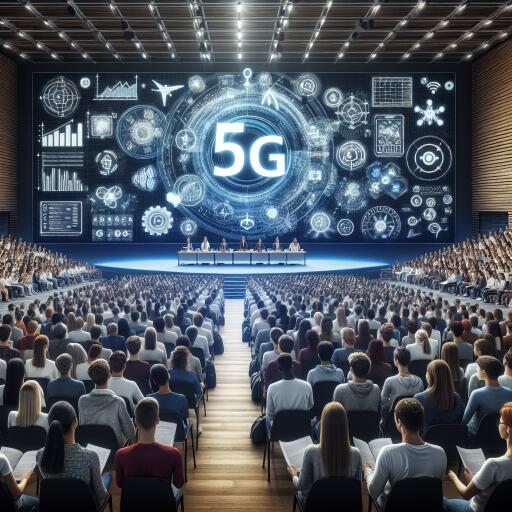Ericsson and DoT Launch Initiative to Upskill Indian Students in 5G Technology
In an ambitious move to prepare India for the 5G revolution, Swedish telecommunications leader, Ericsson, is joining forces with the Department of Telecom (DoT) in India. Together, they aim to flourish the nation’s digital landscape by equipping 10,000 students from 100 institutes with vital 5G technology skills.
The collaboration is part of a broader initiative to kindle innovation and enhance digital competencies among the future pillars of the telecom industry. As part of this endeavor, Ericsson is making its advanced “Ericsson Educate – 21st Century Technologies Programme” available to students and faculty members across the 100 institutes that house DoT’s 5G use case labs.
This groundbreaking program will allow students to explore a wealth of digital courses at no cost. These include the latest advancements in 5G technology, alongside complementary fields such as Artificial Intelligence (AI), the Internet of Things (IoT), Machine Learning, and more, thereby providing a holistic view of tomorrow’s technological landscape.
The MoU, solidifying this partnership, was ceremoniously signed by top officials from both Ericsson and the DoT. The initiative has received acclaim from Ashwini Vaishnaw, Minister for Communications, Electronics & IT and Railways, who is optimistic about the transformative potential of the 5G labs in fostering new use cases for the country. He views this collaboration as a significant stride towards realizing the government’s Digital India vision.
Through this partnership, Ericsson and the DoT aim to address the gap in 5G skills and potentiate a generation of 5G-ready talent capable of propelling India’s digital transformation across various sectors. The initiative promises not just academic knowledge but a chance to access a treasure trove of resources drawn from Ericsson’s 145 years of pioneering experience in telecom technology.
Nitin Bansal, Managing Director of Ericsson India, underscored the initiative’s crucial role in enabling students to craft 5G use cases that resonate with local needs. This, in turn, is expected to boost productivity and fast-track the nation’s digitalization process. Bansal emphasized the collaboration as a keystone in realizing the expansive vision of a Digital India equipped to leverage the emerging 5G landscape meaningfully.
Ericsson’s engagement in this initiative marks a continuation of its longstanding commitment to India, a journey that commenced in 1903. By investing in the nation’s educational infrastructure in such a pivotal technological area, Ericsson reaffirms its dedication to fostering societal advancements through connectivity and education, beyond its commercial interests.
As India stands on the cusp of the 5G era, initiatives like these underscore the importance of building a proficient workforce. This is vital not only for the wide adoption of 5G technology but also for exploring and monetizing new use cases that can transform industries and enhance the lives of millions. With the right skill set, the next generation of professionals will be well-equipped to drive the nation toward a brighter, digitally empowered future.










